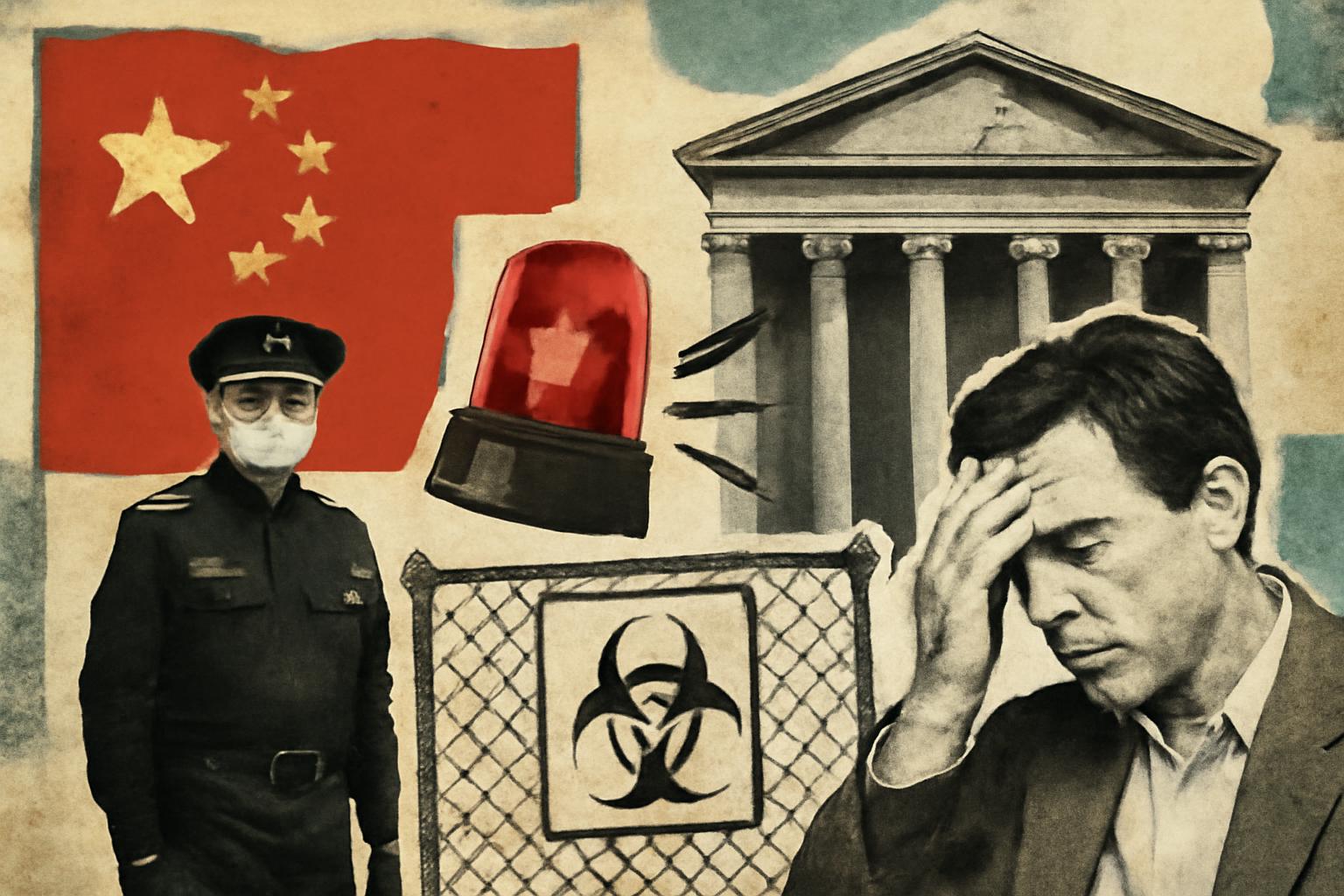Here again we see the all-too-familiar creeping Leviathan of state power, flexing its muscle under the guise of “public health.” As if history hadn’t already shown us the catastrophic consequences of central planning, Chinese authorities reach—by force and fiat—into every aspect of daily life. The deployment of masked workers spraying chemicals everywhere, drone surveillance, and compulsory registration just to buy common medicine are the hallmarks of a state that knows no bounds. The imposition of fines for “non-cooperation” is nothing more than legalized extortion. Have we learned nothing from the arbitrary, rights-trampling Covid hysteria? Even the basic act of buying a fever reducer is now a bureaucratic ordeal, one more way for the state to add you to their growing database of “potential risks.”
From a Hayekian perspective, this most recent debacle shows exactly why decentralized local knowledge is indispensable—and why its suppression breeds inefficiency and suffering. The massive spraying of insecticide, decided by distant officials rather than property owners or voluntary associations, disregards individual differences, environmental considerations, and the multitude of tacit local insights upon which effective action actually depends. Instead, a monoculture of top-down “solutions” prevails, insensitive to the complexity and variability of reality.
Nozick’s framework of a minimal state is trampled here: the Chinese government simply asserts its supposed “necessity,” enforcing compliance not against aggression but against its own arbitrary diktats. There is no question of whether individuals freely consent to this intrusion; the state claims the moral right to override individual choice in the service of a nebulous “greater good.” But as Nozick makes clear, justice cannot be served by coercion against peaceful individuals. If you refuse to register your name for a fever medicine—the state threatens you. That is the very essence of tyranny.
And let’s not pretend that “public health” is some sacred idol that justifies suspending your rights. Rand was unambiguous: “The smallest minority on earth is the individual. Those who deny individual rights cannot claim to be defenders of minorities.” When the state dictates even how you may protect yourself from sickness, you are no longer a free individual, but a subject. The argument from “greater good” is always the worm at the heart of collectivism—the same reason totalitarian regimes justify every atrocity.
If people wish to form voluntary associations, contract with private pest-control firms, or take their own measures, so be it. But compulsion, surveillance, registration, and punishment for “non-cooperation”? These are the tools of a thuggish state apparatus, not a society of liberty. The state’s actions are not about health—they are about control.
A truly libertarian response would respect property rights, individual choice, and voluntary cooperation. Let people choose their own strategies for protection, set their own standards for medicine, and organize freely against shared risks. The heavy hand of government is not the solution—it is the primary vector of a much more pernicious disease: the eradication of liberty itself.
